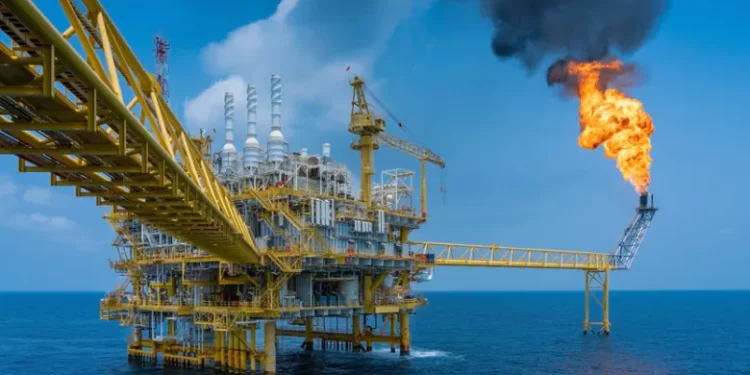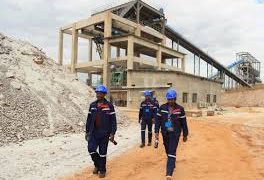PIAC Urges Increased Investment in Petroleum Sector as Ghana Projected to Capture 20% of West Africa’s $80bn Oil and Gas Market by 2033
Chair of the sub-Technical Committee of the Public Interest and Accountability Committee (PIAC), Richard Ellimah, has urged the government to increase investments in Ghana’s petroleum sector to unlock the country’s full hydrocarbon potential and realise its projected share of West Africa’s oil and gas market.
His remarks follow a recent Deloitte report projecting that Ghana could account for 20% of the sub-region’s $80 billion oil and gas market by 2033.
Speaking during a virtual media engagement on PIAC’s 2025 Semi-Annual Report, organised with support from Good Governance Africa on Wednesday, October 22, 2025, Mr Ellimah stated that while Ghana’s potential remains substantial, limited exploration and underinvestment continue to undermine production growth.
“The Deloitte report is looking at the potential, the resource potential of the country and so on. And anybody who is a student of our energy sector will tell you that potential does exist. But what we haven’t done too well is the actual exploration and then getting into the production phase. We haven’t gotten there yet, but for the potential, it is there. And if we are to exploit our hydrocarbons, we could probably hit the 20% of the $80 billion Deloitte has projected,” he told NorvanReports.
Mr Ellimah further stressed that the projection by Deloitte can only materialise if the government commits to sustained investments in exploration and production.
“It all comes down to investment. We have seen a consistent decline in production over the years because we are not investing enough in the sector. And if we don’t, this projection might not even come to pass,” he added.
Also commenting on the projection by Deloitte was Mark Agyemang, another member of PIAC’s sub-Technical Committee, who underscored that Ghana’s growth in the oil and gas sector should not be viewed solely from an upstream perspective.
“The oil industry has three main segments — upstream, midstream and downstream — and all are driven by economic growth. If Ghana’s industrialisation agenda succeeds in attracting automobile makers and heavy industries, that will drive demand across the midstream and downstream, which will in turn expand the overall market share,” he explained.
The Deloitte report comes at a time when Ghana’s crude oil production continues to decline, with no new oil exploration activities since 2017. The sector also faces regulatory uncertainty and waning investor confidence following unitisation disputes between the Government, ENI and Springfield Exploration and Production.
Industry analysts believe that addressing these challenges, including reforms to enhance regulatory clarity and incentivise exploration, remains key to reviving growth in the petroleum sector and positioning Ghana as a major regional player.
Valuation of Ghana’s Oil & Gas Market to hit $16bn in 8 Years
Ghana is projected to account for 20 percent of West Africa’s estimated $80 billion oil market value by 2033, according to Deloitte’s latest report on the West African Oil Market. This projection translates to a contribution of approximately $16 billion from Ghana to the region’s total market value over the next eight years.
Nigeria, the region’s largest oil producer, is expected to dominate with 60 percent of the total estimated market value, while the remaining 20 percent will be shared among other oil-producing countries, including Angola, and Côte d’Ivoire.
According to the report, the West African oil and gas market is demonstrating strong growth potential, buoyed by rising global energy demand and the region’s abundant reserves. The report further notes that the market is expected to record a compound annual growth rate (CAGR) of 6.5% over the period 2025 to 2033, reflecting sustained investment and exploration activities.
In terms of crude production, Nigeria remains the continent’s top oil producer, averaging 1.5 million barrels per day (bpd) at the end of 2024, followed closely by Angola, which produced around 1.1 million bpd. Deloitte attributes the positive outlook for Ghana and other regional players to ongoing exploration projects, favourable fiscal policies, and increasing investor confidence in the region.








